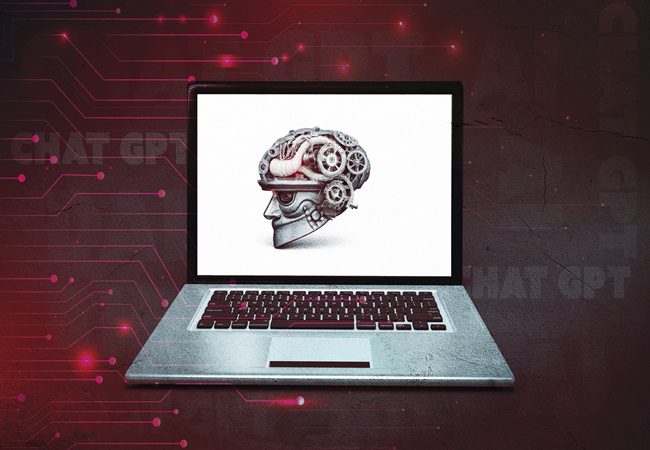Introduction:
Artificial Intelligence (AI) has transcended its role as a futuristic concept and emerged as a powerful force reshaping the landscape of business and industries worldwide. In this article, we delve into the multifaceted ways in which AI is revolutionizing various sectors, from streamlining operations to enhancing customer experiences, and explore how businesses are leveraging this technology to gain a competitive edge in today’s dynamic marketplace.
Streamlining Operations:
One of the primary areas where AI is transforming businesses is in streamlining operations. Machine learning algorithms, fueled by vast datasets, are adept at analyzing complex patterns and automating repetitive tasks. This not only increases efficiency but also reduces operational costs. From supply chain management to inventory optimization, AI-driven solutions are revolutionizing the way businesses operate, allowing them to allocate resources more effectively and adapt to changing market dynamics.
Enhancing Decision-Making:
AI is also revolutionizing decision-making processes within businesses. Advanced analytics and predictive modeling enable businesses to make data-driven decisions in real-time. Whether it’s optimizing marketing strategies, predicting customer preferences, or identifying emerging market trends, AI empowers businesses to stay ahead of the curve and capitalize on opportunities with precision and agility. This strategic advantage is crucial in today’s fast-paced and competitive business environment.
Improving Customer Experiences:
In the era of customer-centricity, AI is playing a pivotal role in improving customer experiences across industries. Natural Language Processing (NLP) algorithms power virtual assistants and chatbots, providing personalized and seamless interactions with customers. Sentiment analysis algorithms help businesses gauge customer feedback and sentiment in real-time, enabling them to address issues promptly and enhance overall satisfaction. Additionally, AI-driven recommendation engines deliver personalized product recommendations, driving engagement and loyalty among customers.
Optimizing Marketing Efforts:
AI-driven marketing solutions are transforming how businesses engage with their target audience. By analyzing vast amounts of data, AI algorithms can segment audiences more accurately and deliver hyper-targeted marketing campaigns. Personalized marketing messages, tailored to individual preferences and behaviors, result in higher conversion rates and increased ROI. Moreover, AI-powered marketing analytics provide valuable insights into campaign performance, allowing businesses to refine their strategies and optimize marketing spend effectively.
Predictive Maintenance and Risk Management:
In industries reliant on machinery and equipment, AI is revolutionizing maintenance practices. Predictive maintenance algorithms analyze sensor data in real-time to detect anomalies and predict potential failures before they occur. This proactive approach not only minimizes downtime but also reduces maintenance costs and prolongs the lifespan of assets. Furthermore, AI-driven risk management solutions leverage predictive analytics to identify and mitigate potential risks, safeguarding businesses against unforeseen challenges and disruptions.
Unlocking Innovation and Creativity:
AI is not just optimizing existing processes; it’s also unlocking new opportunities for innovation and creativity within businesses. Generative AI algorithms, such as Generative Adversarial Networks (GANs), are capable of creating realistic images, videos, and even music. Businesses are harnessing these capabilities to develop innovative products, enhance marketing campaigns, and drive creativity in various domains. Additionally, AI-powered ideation platforms facilitate collaborative brainstorming sessions, enabling businesses to generate and explore new ideas more effectively.
Addressing Ethical and Regulatory Considerations:
As businesses embrace AI technologies, it’s essential to address ethical and regulatory considerations. Transparency and accountability in AI algorithms are paramount, ensuring that decisions are fair, unbiased, and explainable. Moreover, businesses must prioritize data privacy and security to protect sensitive information and maintain customer trust. Collaborating with regulatory bodies and industry stakeholders to establish guidelines and standards for AI deployment is crucial for fostering responsible AI adoption and mitigating potential risks.
Conclusion:
Artificial Intelligence is not just a buzzword; it’s a transformative force reshaping businesses and industries across the globe. From streamlining operations to enhancing customer experiences, AI-driven solutions are revolutionizing every aspect of business operations. As businesses navigate the AI landscape, it’s essential to prioritize ethical considerations, transparency, and regulatory compliance to ensure responsible AI adoption. By harnessing the power of AI strategically, businesses can unlock new opportunities for growth, innovation, and competitive advantage in today’s rapidly evolving marketplace.

































